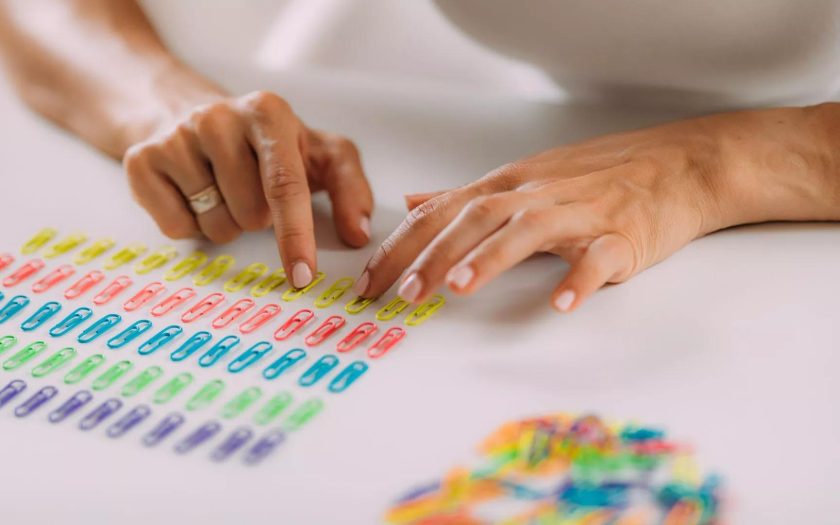Unhealthy obsession with cleaning.
If everything in your home is clean and guests walk through your apartment as if it were a museum, but you still feel an overwhelming urge to continually polish mirrors and scrub floors, this may indicate the development of OCD. Excessive cleaning multiple times a day is not normal behavior. If you notice this trait in yourself, consult a specialist for a detailed diagnosis.
Need for everything to be perfectly organized (literally).
A cup left on the table instead of its designated spot on the kitchen shelf can set off a tantrum in someone with OCD. Such individuals are usually disturbed by any objects that they believe are not in their proper place. Slippers must be on the shoe rack, the remote should be under the TV and even the cat should be in its basket. They might become anxious even if an object is not positioned at the exact correct angle.
Excessive insecurities.
Many people worry about their appearance, their actions and what others think of them. This becomes problematic when an individual cannot contain these concerns and physically requires constant reassurance or validation from others that everything is okay. This is one of the signs of OCD.
Obsessive account.
In OCD, a person may count the most unexpected things, such as the number of trees a tram pass through or the number of green peas in a salad. Additionally, in this disorder, the results of such counting can cause significant disturb a person and compel the person to perform certain actions (e.g., removing and discarding one pea from the salad). Such behavior interferes with normal life and can strain relationships, even with close family members. Therefore, if you notice this sign in yourself or you loved ones, it is important not to ignore it. The sooner treatment begins, the easier it will be to return to a normal life free from anxiety and stress.
Accumulation of things.
Healthy behavior involves getting rid of clothes, furniture or appliances that are clearly no longer usable. However, if a person refuses to discard anything and keeps all items, believing that they might come in handy someday, this can be a sign of OCD. In such cases, a person might continue this behavior repeatedly, turning their home into a storage space full of old items.
Obsessive focus on relationships.
Breakups with a loved one, arguments with family members or conflicts with a boss are unpleasant but entirely normal situations. In such cases, it is normal to feel distressed, try to understand what led to the breakup or conflict and draw conclusions. However, if these feelings persist for years and diminish quality of life, it may be time to seek help. Such a state could indicate the development of OCD, which can negatively impact a person’s health.
If you recognize one or more of these signs in yourself, be sure to consult a doctor. After diagnosing, the specialist will prescribe a treatment plan for OCD, which typically includes a combination of medications (such as Apo-Clomipramine or Fluvoxin) and psychotherapy. In some cases, other forms of psychotherapy or alternative treatments, such as group therapy, mindfulness-based therapy or deep brain stimulation, may be recommended. Remember, timely treatment can accelerate recovery.

